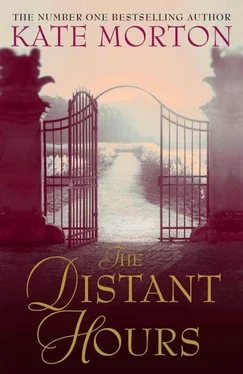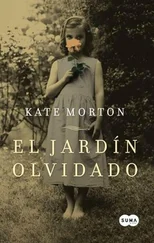So it was, back in May, I was preparing to leave forever the flat that Jamie and I had shared, to turn the final, blank page of our story and begin a new one all of my own. I had my work, I had my health, I had an awful lot of books; I just needed to be brave, to face up to the grey, lonely days that stretched on indefinitely.
All things considered, I think I was doing pretty well: only occasionally did I allow myself to slip deep inside the pool of my own most maudlin imaginings. At these times I’d find a quiet, dark corner – all the better to give myself over fully to the fantasy – and picture in great detail those bland future days when I would walk along our street, stop at our building, gaze up at the windowsill on which I used to grow my herbs and see someone else’s silhouette fall across the glass. Glimpse the shadowy barrier between the past and the present, and know keenly the physical ache of being unable ever to go back.
I was a daydreamer when I was small, and a source of constant frustration to my poor mother. She used to despair when I walked through the middle of a muddy puddle, or had to be wrenched back from the gutter and the path of a hurtling bus, and say things like: ‘It’s dangerous to get lost inside one’s own head,’ or ‘You won’t be able to see what’s really going on around you – that’s when accidents happen, Edie. You must pay attention.’
Which was easy for her: never had a more sensible, pragmatic woman walked the earth. Not so simple, though, for a girl who’d lived inside her head for as long as she’d been able to wonder: ‘What if…?’ And I didn’t stop daydreaming, of course, I merely got better at hiding it. But she was right, in a way, for it was my preoccupation with imagining my bleak and dreary post-Jamie future that left me so utterly unprepared for what happened next.
In late May, we received a phone call at the office from a self-styled ghost whisperer who wanted to publish a manuscript about his other-worldly encounters on Romney Marsh. When a prospective new client makes contact, we do whatever we can to keep them happy, which is why I found myself driving Herbert’s rather ancient Peugeot hatchback down to Kent for a meet, greet and, hopefully, woo. I don’t drive often and I loathe the motorway when it’s busy, so I left at the crack of dawn, figuring it gave me a clearer run at getting out of London unscathed.
I was there well before nine, the meeting itself went very well – wooing was done, contracts were signed – and I was back on the road again by midday. A much busier road by then, and one to which Herbert’s car, incapable of going faster than fifty miles per hour without serious risk of tyre-loss, was decidedly unequal. I planted myself in the slow lane, but still managed to attract much frustrated horn-honking and head-shaking. It is not good for the soul to be cast as a nuisance, particularly when one has no choice in the matter, so I left the motorway at Ashford and took the back roads instead. My sense of direction is quite dreadful, but there was an AA book in the glove compartment and I was resigned to pulling over regularly to consult it.
It took me a good half hour to become well and truly lost. I still don’t know how it happened, but I suspect the map’s vintage played a part. That, and the fact that I’d been enjoying the view – fields speckled with cowslips; wild flowers decorating the ditches by the side of the road – when I probably should have been paying attention to the road itself. Whatever the cause, I’d lost my spot on the map, and was driving along a narrow lane over which great bowed trees were arched when I finally admitted that I had no idea whether I was heading north, south, east or west.
I wasn’t worried, though, not then. As far as I could see, if I just continued on my way, sooner or later I was bound to reach a junction, a landmark, maybe even a roadside stall where someone might be kind enough to draw a big red X on my map. I wasn’t due back at work that afternoon; roads didn’t continue on forever; I just needed to keep my eyes peeled.
And that’s how I saw it, poking up from the middle of an aggressive mound of ivy. One of those old white posts with the names of local villages carved into arrowed pieces of wood pointing in each direction. Milderhurst , it read, 3 miles .
I stopped the car and read the signpost again, hairs beginning to quiver on the back of my neck. An odd sixth sense overcame me, and the cloudy memory that I’d been struggling to bring into focus ever since Mum’s lost letter arrived in February resurrected itself. I climbed out of the car, as if in a dream, and followed where the signpost led. I felt like I was watching myself from the outside, almost as if I knew what I was going to find. And perhaps I did.
For there they were, half a mile along the road, right where I’d imagined they might be. Rising from the brambles, a set of tall iron gates, once grand but listing now at broken angles. Leaning, one towards the other, as if to share a weighty burden. A sign was hanging on the small stone gatehouse, a rusted sign that read, Milderhurst Castle .
My heart beat fast and hard against my ribcage and I crossed the road towards the gates. I gripped a bar with each hand – cold, rough, rusting iron beneath my palms – and brought my face, my forehead, slowly to press against them. I followed with my eyes the gravel driveway that curved away, up the hill, until it crossed a bridge and disappeared behind a thick patch of woods.
It was beautiful and overgrown and melancholy, but it wasn’t the view that stole my breath. It was the thudding realization, the absolute certainty, that I had been here before. That I had stood at these gates and peered between the bars and watched the birds flying like scraps of night-time sky above the bristling woods.
Details murmured into place around me and it seemed as if I’d stepped into the fabric of a dream; as if I were occupying, once again, the very same temporal and geographical space that my long-ago self had done. My fingers tightened around the bars and somewhere, deep within my body, I recognized the gesture. I’d done the same thing before. The skin of my palms remembered. I remembered. A sunny day, a warm breeze playing with the hem of my dress – my best dress – the shadow of my mother, tall in my peripheral vision.
I glanced sideways to where she stood, watching her as she watched the castle, the dark and distant shape on the horizon. I was thirsty, I was hot, I wanted to go swimming in the rippling lake that I could see through the gates. Swimming with the ducks and moorhens and the dragon- flies making stabbing movements amongst the reeds along the banks.
‘Mum,’ I remembered saying, but she didn’t reply. ‘Mum?’ Her head turned to face me, and a split second passed in which not a spark of recognition lit her features. Instead, an expression that I didn’t understand held them hostage. She was a stranger to me, a grown-up woman whose eyes masked secret things. I have words to describe that odd amalgam now: regret, fondness, sorrow, nostalgia; but back then I was clueless. Even more so when she said, ‘I’ve made a mistake. I should never have come. It’s too late.’
I don’t think I answered her, not then. I had no idea what she meant and before I could ask she’d gripped my hand and pulled so hard that my shoulder hurt, dragging me back across the road to where our car was parked. I’d caught a hint of her perfume as we went, sharper now and sour where it had mixed with the day’s scorching air, the unfamiliar country smells. And she’d started the car, and we’d been driving, and I was watching a pair of sparrows through the window when I heard it: the same ghastly cry that she’d made when the letter arrived from Juniper Blythe.
Читать дальше












